Elsevier in Africa
Research and health capacity building
Elsevier in Africa
Research and health capacity building
The African Continent has one of the youngest populations in the world, filled with talented women and men who can help find solutions to some of the biggest challenges facing us today. While the digital revolution has helped to bring scientists, doctors and nurses in touch with their global peers, it has also underscored the struggle that many Africans continue to have with health, infrastructure, investment, skills development and connecting with peers.
Over the past decade, the Elsevier Foundation, a corporate non-profit funded by Elsevier, has supported over 30 projects.
Today, both Elsevier, a global information analytics business specialized in science and health, and the Elsevier Foundation are proud to partner with many African organizations to build health and research capacity across Africa by:
- Providing access to information and analytics through ScienceDirect, Scopus and ClinicalKey
- Making our content available through Research4Life
- Delivering authorship workshops
- Mentoring African health journals
- Celebrating the successes of women scientists
- Supporting nursing education
- Funding a health tech solutions accelerator and an African research center in Niger
- Designing localized solutions for African health needs
Read more to find out how we work to boost collaboration, diversity, dissemination, and above all, the research and health potential in Africa.
BUILDING RESEARCH CAPACITY
Scientific African
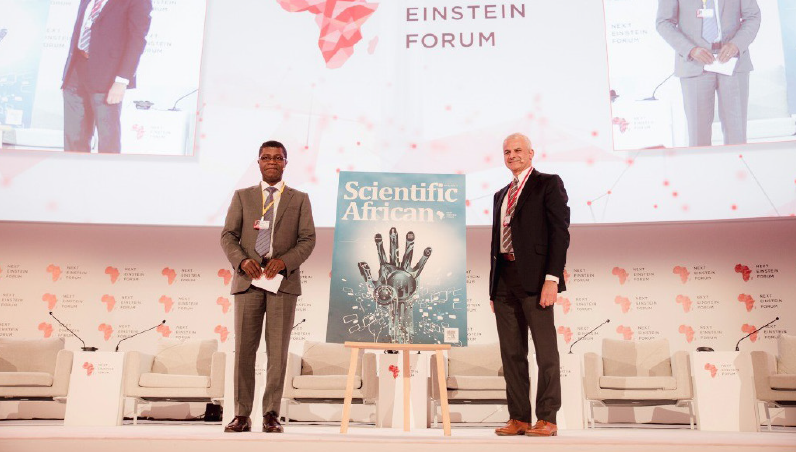
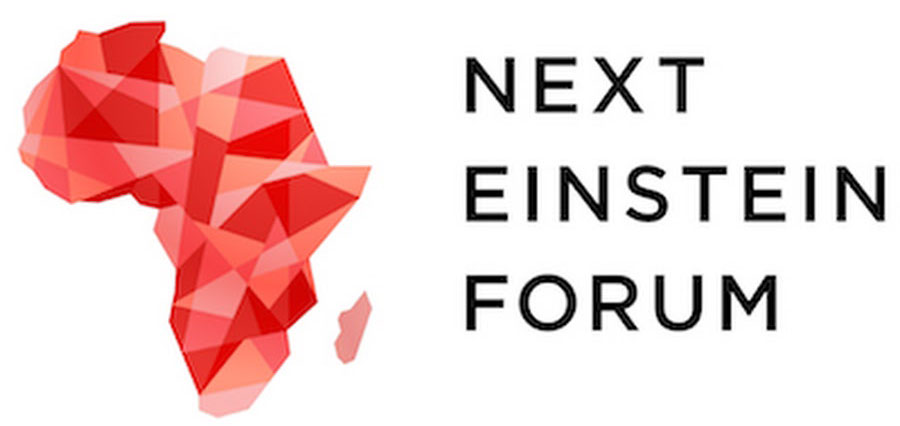
Elsevier and the Next Einstein Forum have a long-standing collaboration addressing the challenges of researchers in Africa. Together, they are bringing state-of-the-art technology and processes to bear on these challenges, creating a modern open access journal to accelerate capacity-building efforts across Africa. Scientific African generates increased visibility for African researchers and provides a platform to share their research with the global community. Since December 2018, the journal has engaged more than 1,100 submissions from almost everywhere in Africa and published more than 160 papers in all fields of science. It was also indexed in the Directory of Open Access Journals and over 75,000 Scientific African articles have been downloaded.
Research Without Borders
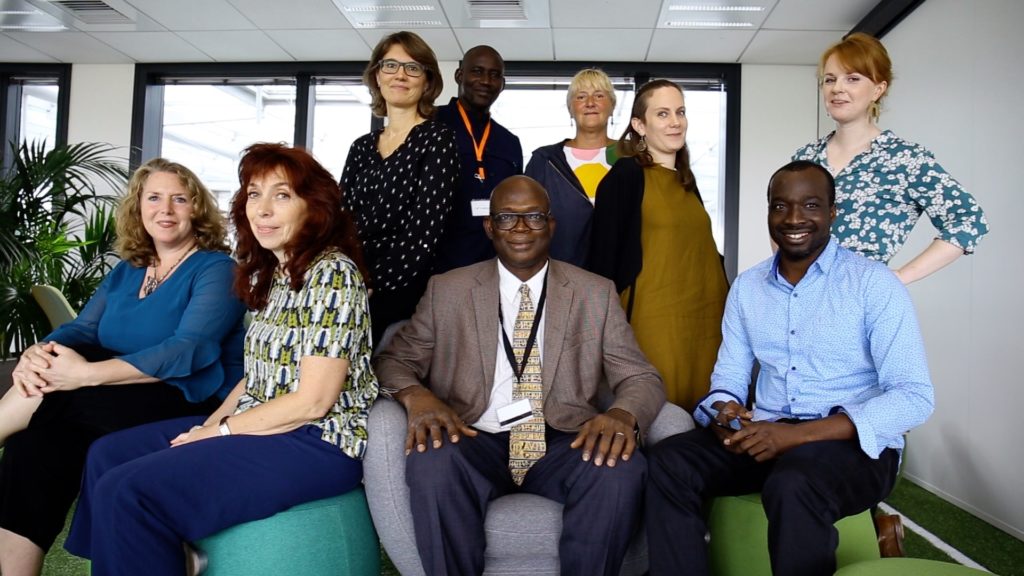
To increase the impact of African health research, the Elsevier Foundation has partnered with African Journals Partnership Program on “Research without Borders”, a skills-based employee volunteering program to support 10 African health journals. Since 2017, 40 volunteers have contributed a total of a total of 97 weeks of time sharing expertise in publishing, marketing, operations and technology – with additional Francophone workshops in Amsterdam and Paris.
Researcher Academy
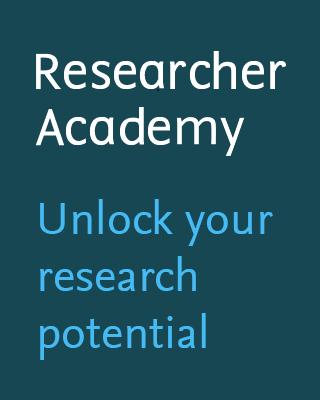
To increase the impact of African health research, the Elsevier Foundation has partnered with African Journals Partnership Program on “Research without Borders”, a skills-based employee volunteering program to support 10 African health journals. Since 2017, 40 volunteers have contributed a total of a total of 97 weeks of time sharing expertise in publishing, marketing, operations and technology – with additional Francophone workshops in Amsterdam and Paris.
Egyptian Knowledge Bank
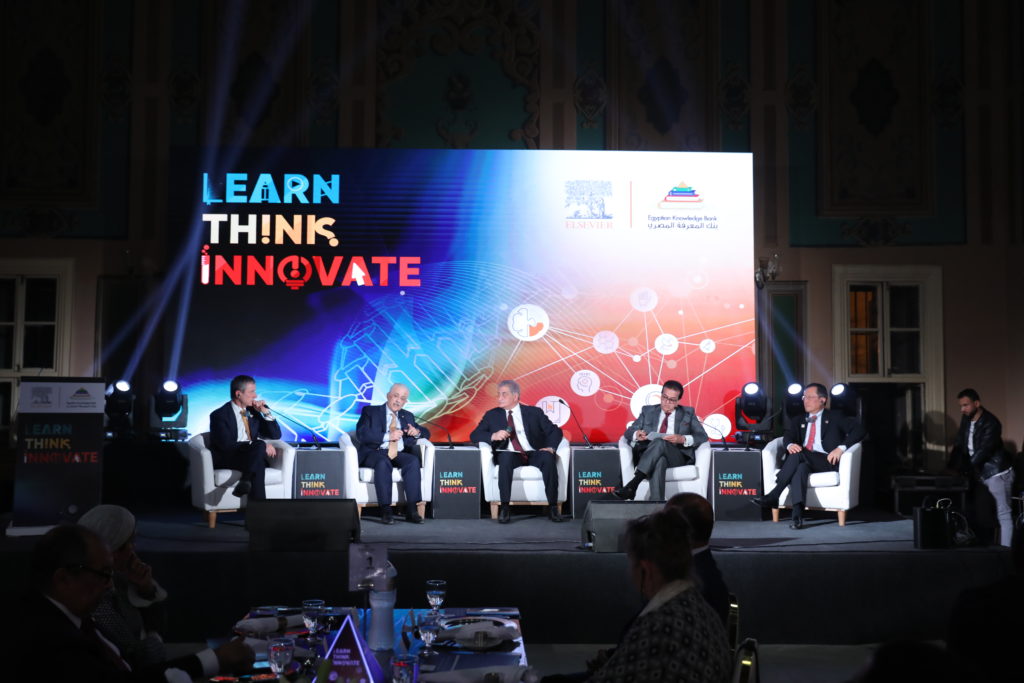
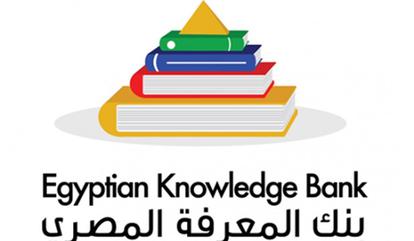
The Egyptian Knowledge Bank (EKB) brings together the world’s knowledge in one of the largest global digital libraries that is accessible to all. The EKB is aiming to drive inspiration, learning, and innovation throughout Egypt. Elsevier is working closely with the EKB committee to support them in achieving their goals.
Elsevier celebrated with the Egyptian Knowledge Bank (EKB) the success of four years of strategic partnership under the auspices of Minister of Education and Technical Education (from the right: YoungSuk Chi, Dr. Khaled Abdelghafar (Minister of Higher Education & Scientific Research), Dr. Tarek Shawki (Minister of Education & Technical Education) and Gino Ussi).
Elsevier Atlas Awards
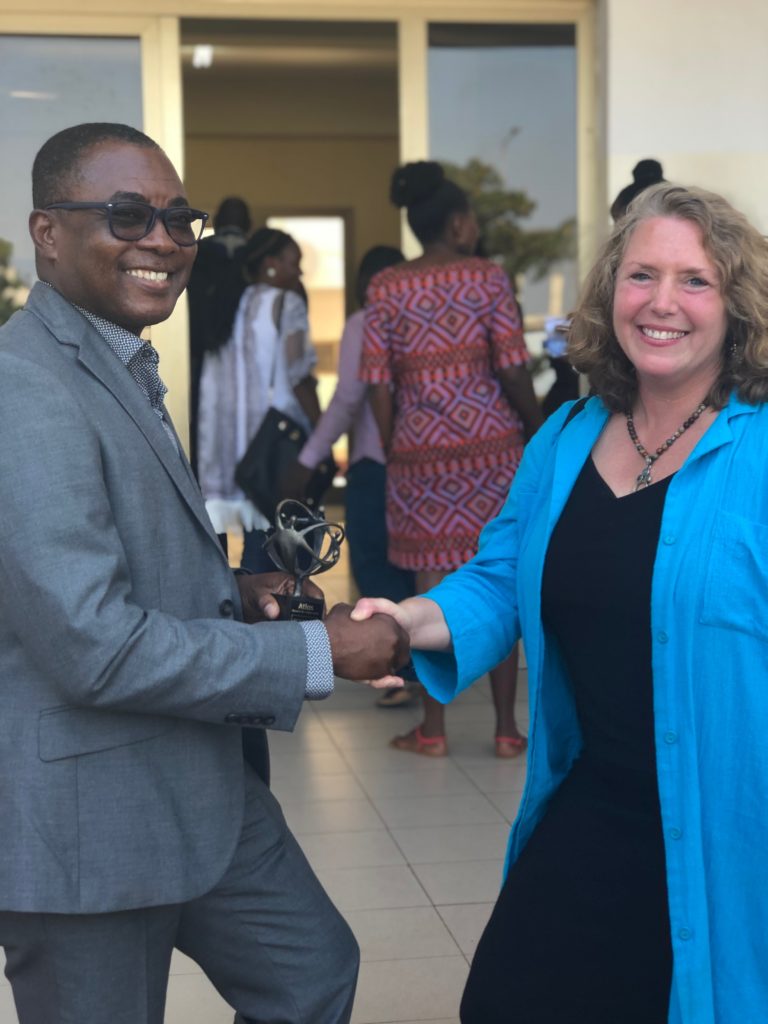
Science impacts everyone’s world. With over 2,500 journals publishing articles from across science, technology and health, our mission is to share some of the stories that matter. Launched in 2015, each month Atlas showcases research that could significantly impact people’s lives around the world, or has already done so. A great number of Atlas awardees’ research focused on sustainability in Africa, tackling issues pertaining to technological capabilities, growth, inequality, allergy and immunology and education among other topics.
Ylann Schemm, Director of Elsevier Foundation, and Dr. Bawah Ayaga Agula, Senior Lecturer at the Regional Institute for Population Studies (RIPS) in Acccram Ghana — Atlas Awardee 2019. Dr. Bawah’s research examined the empirical basis for a poverty reduction programme focused on community-based primary health care.
Increasing the visibility of African universities
Capacity building and awareness activities in universities to: improve their research outputs, understand the relevant metrics and how to plan strategies to improve research impact, and to increase the visibilities of their outputs.
Since the partnership between Times Higher Education (THE) and Elsevier in 2016, and the use of the Scopus database to measure the research performance of the universities, the number of African universities included in the THE World University Rankings has risen from 13 universities in 2016 to 56 universities in 2020.
THE is the data provider underpinning university excellence in every continent across the world. As the company behind the world’s most influential university ranking, and with almost five decades of experience as a source of analysis and insight on higher education, we have unparalleled expertise on the trends underpinning university performance globally.
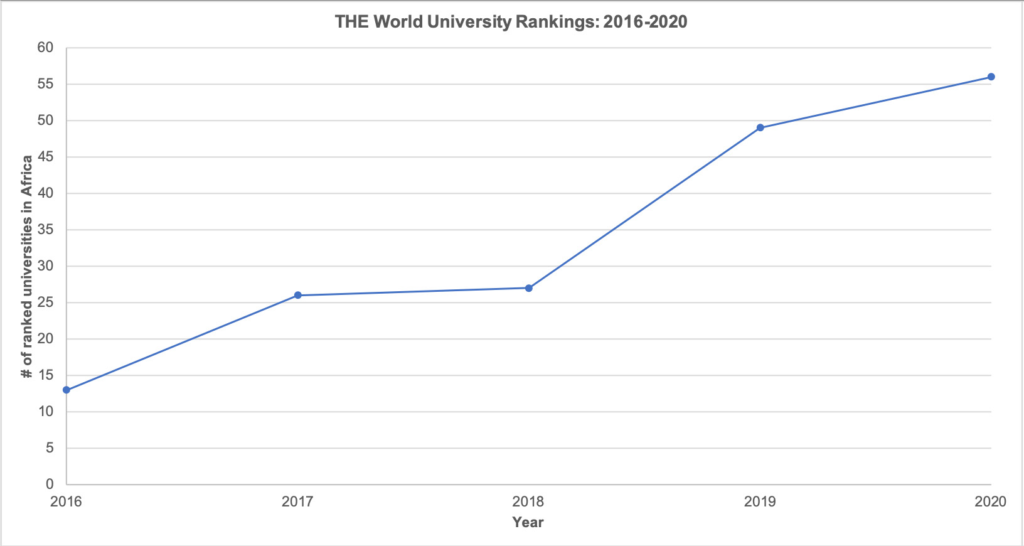
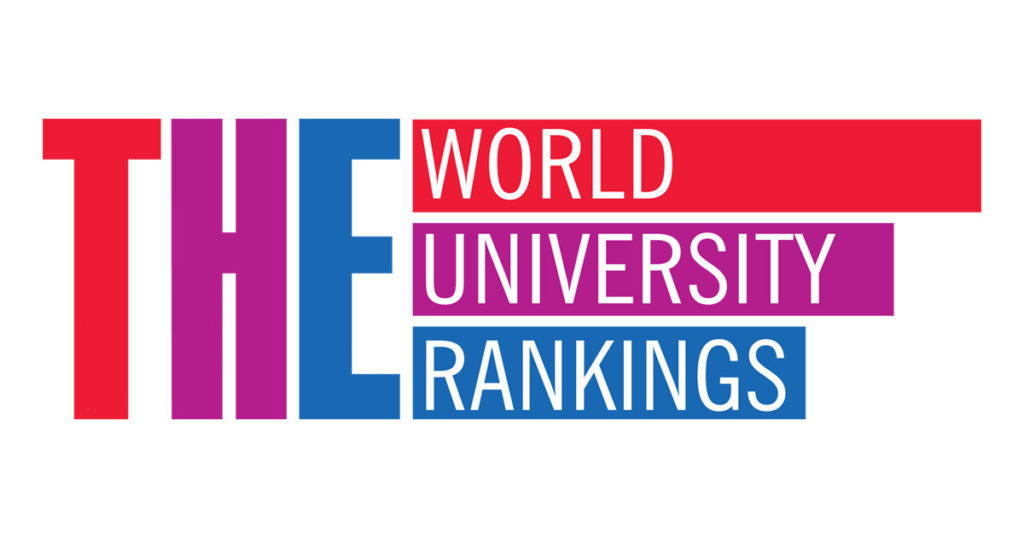
THE is the data provider underpinning university excellence in every continent across the world. As the company behind the world’s most influential university ranking, and with almost five decades of experience as a source of analysis and insight on higher education, we have unparalleled expertise on the trends underpinning university performance globally.
ADVANCING WOMEN IN SCIENCE
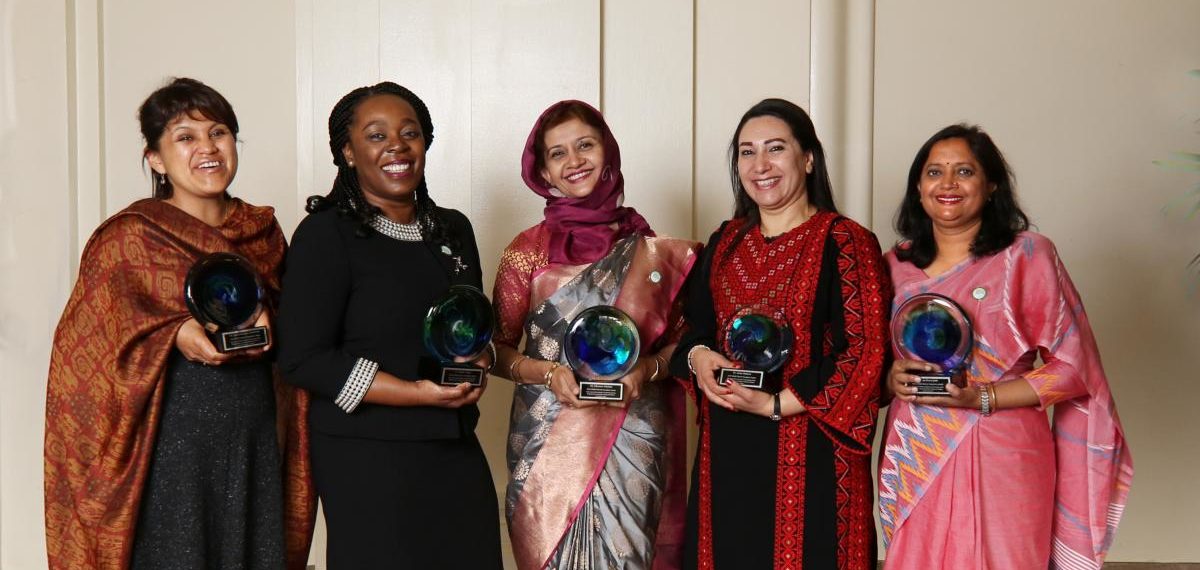
“Receiving the Award is an encouragement to continue improving maternal and newborn survival. I hope this inspires African women to become leaders and gives them the courage and confidence to tackle Africa’s challenges in global health and development.”
Dr. Uduak Ukomo - 2019 Award Winner
Medical Research Council Unit, The Gambia
Through the work of the Elsevier Foundation, Elsevier supports African women scientists, with awards, travel grants and programs advocating a gender lens in research and development. Since 2010, the OWSD-Elsevier Foundation Awards for Early-Career Women Scientists in the Developing World recognizes the achievements of researchers who have made significant contributions to the advancement of scientific knowledge.
Spotlight on the African Award Winners

Chao Charity Mbogo (2020 Winner)
Kenya Methodist University, Kenya
For her work designing techniques to support students in resource-constrained environments to learn computer programming using mobile devices. Her research finds ways to circumvent limitations such as small screens and small keypads, that make it difficult for students to use mobile phones for programming in areas where computers are not easily available

Germaine Djudije Kenmoe (2018 Winner)
University of Yaoundé, Cameroon
For her work on mechanics and the study of friction-and-wear processes on the molecular level, which has the potential for important applications in the area of energy efficiency – to reduce the cost of energy and material losses caused by wear.

Grace Ofori Sarpong (2017 Winner)
University Of Mines And Technology, Ghana
For her research work in microbial-mineral interaction, recovery of precious metals, water quality monitoring and acid mine drainage: Dr. Ofori-Sarpong’s research focuses on making the extraction of gold-bearing minerals and free gold particles possible and more efficient.

Grace Ofori Sarpong (2017 Winner)
University Of Mines And Technology, Ghana
For her research work in microbial-mineral interaction, recovery of precious metals, water quality monitoring and acid mine drainage: Dr. Ofori-Sarpong’s research focuses on making the extraction of gold-bearing minerals and free gold particles possible and more efficient.
WaterFirst!
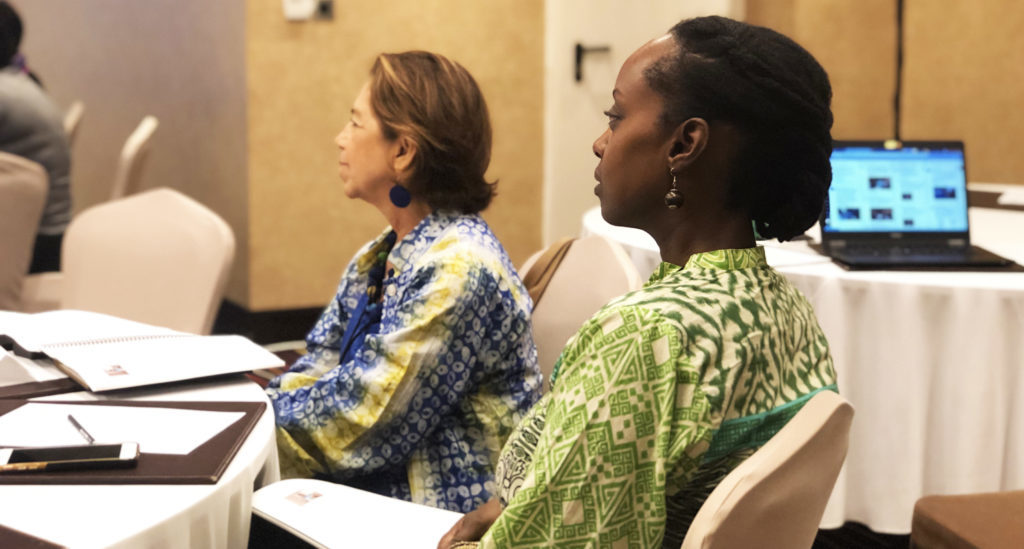
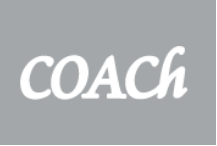
The Elsevier Foundation is proud to support the Water First! initiative led by COACh at the University of Oregon, aimed at increasing the ability of African women working in water research and policy to be more effective in their efforts through group discussions, leadership training and strategic planning. It seeks to establish a network of African women practitioners whose expertise and experience can be tapped at multiple levels to address water security challenges facing the continent. In 2019, we held a Water First! workshop in Ghana to discuss water security, one of the greatest challenges of the 21st century.
Portia and the Gender Summits
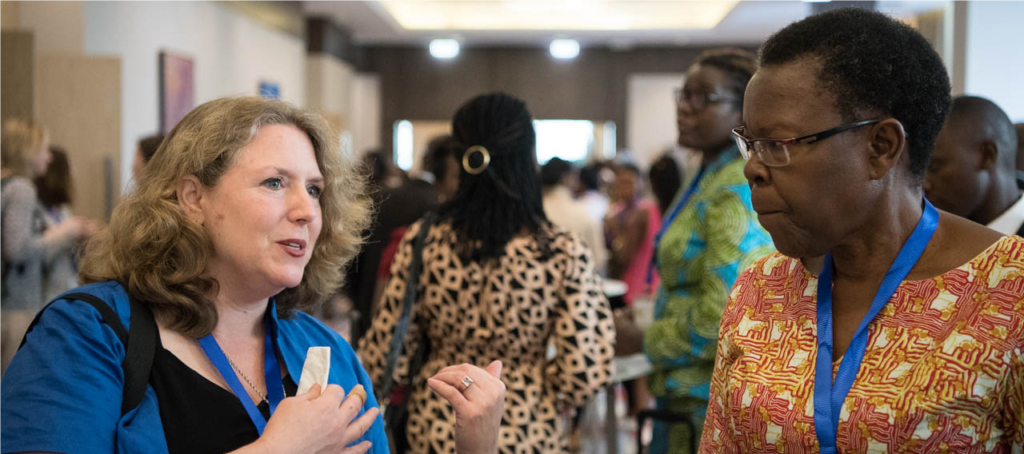

As part of our long-standing partnership with Portia, both Elsevier and the Elsevier Foundation actively support the Gender Summit movement worldwide. These conferences act as platforms for dialogue and change. Gender Summits seek to improve the quality of research and the relevance of science to society, wherever biological and socio-cultural differences between females and males influence outcomes. Scientists, gender scholars, policy makers and other stakeholders are deeply involved in the process, examining new evidence and establishing consensus where improvements are needed.
SUPPORTING HEALTHCARE IN AFRICA
Reach of our Health Content across the Continent

Across Africa, Elsevier enables medical, nursing and allied health teaching institutions to access the latest evidence-based content. Whether in print or electronic format, Elsevier supports their learning and teaching needs, resulting in better learning outcomes for students and improved teaching results for institutions, ultimately leading to better patient results when they transition to clinical practice.
Today, more healthcare students in medicine and nursing qualify at higher standards and are able to better progress to the professional setting where they help improve the healthcare delivered to patients in the hospital or clinical practice.
By integrating Elsevier’s evidence-based content into the patient care process, Ministries of Health, private hospitals and teaching institutions are helping caregivers and professionals improve practice, encourage broad and deep adoption of exceptional professional practice and promote a culture of quality across their organizations – ultimately reducing variability and improving patient outcomes and safety.
Elsevier is a proud partner of many top teaching institutions and hospital providers across Africa delivering the most current and credible peer-reviewed medical, nursing and drug content.
MSF/Epicentre Research Center in Niger
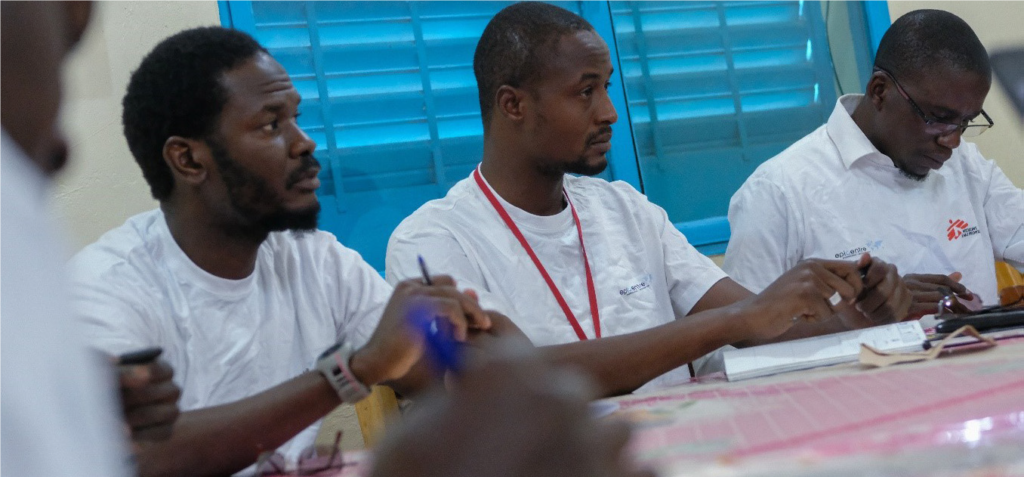

Half a million African children die each year from Rotavirus, a highly infectious disease causing severe dehydration and diarrhea. Since 2014, Epicentre, Doctors without Borders’ research and training arm, has conducted clinical trials for a game-changing, heat stable vaccine in their Niger Research Center. To build the field-based capacity to deliver better medical care worldwide, and to support “Scientific Days” to reach scientists, doctors, policymakers and funders, the Elsevier Foundation has awarded Epicentre a $300,000 grant over 3 years, and has committed to three more years of support.
Ebola Resource Center
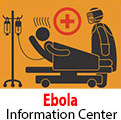
The Elsevier Ebola Resource Center offers free access to health and medical research, online tools and expert advice on Ebola; continuously updated throughout the epidemic. The Resource Center includes a free 30-minute online course to prepare nurses to safely care for affected patients called Ebola: What You Need to Know.
AMREF: Innovate for Life
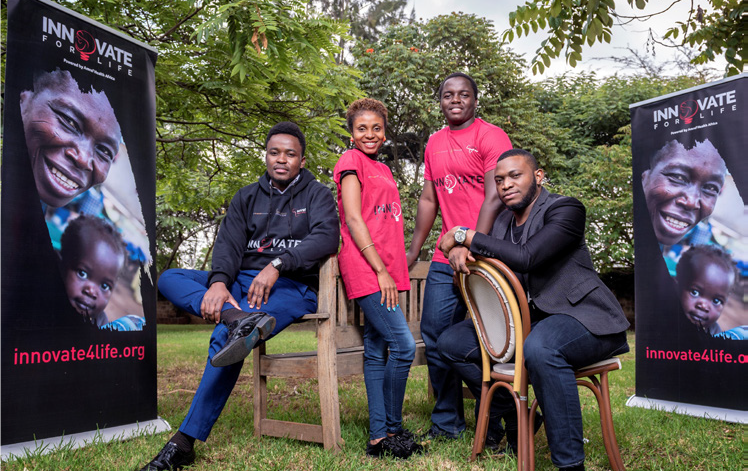
Supporting African entrepreneurs to develop home-grown innovations for health: this is the goal of Innovate for Life, an accelerator launched by Amref, an international Africa-driven health NGO. Since 2017, The Elsevier Foundation has supported Amref to equip early stage entrepreneurs with deep subject matter knowledge, strong networks, and access to funding to develop solutions that support their communities.
AMREF: the Jibu app
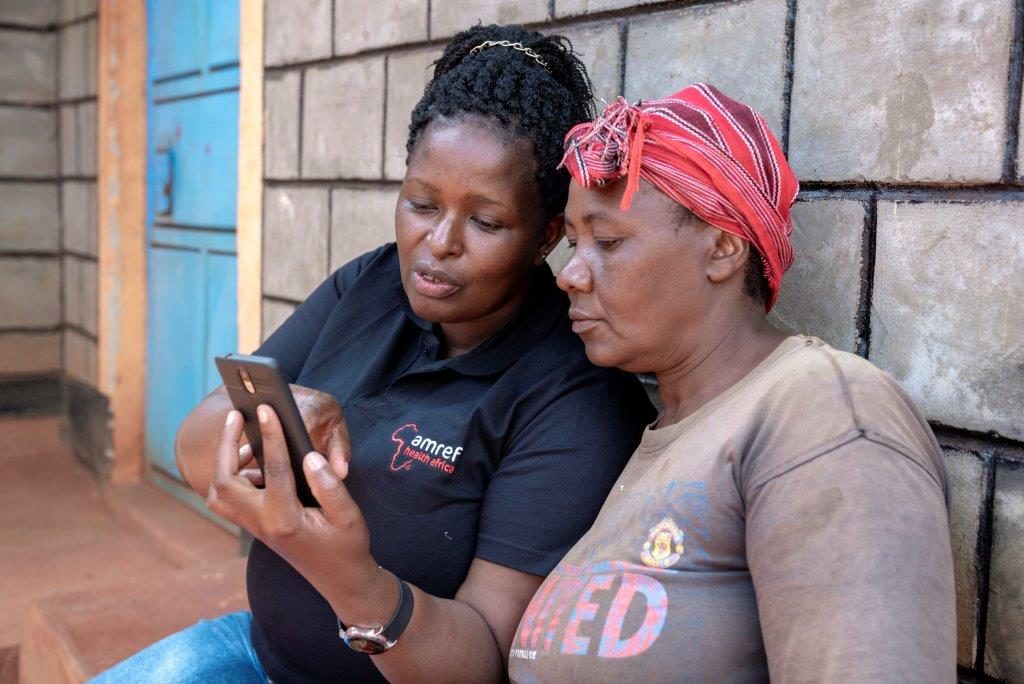
Jibu aims to reach nurses through their mobile devices to provide them with nursing literature. Since 2016, the Elsevier Foundation has been proud to support Amref’s Jibu program with a $240,000 grant to develop a nursing app for continuing education to provide targeted mLearning, or mobile nursing education, in Eastern Africa.
The Lancet Commission on the future of health in sub-Saharan Africa
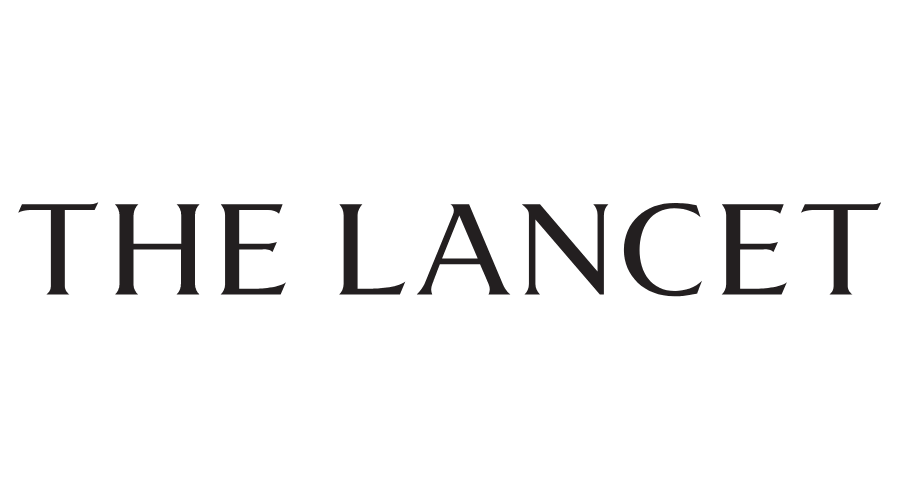
The Lancet Commission – The path to longer and healthier lives for all Africans by 2030 – was established in 2013 and led African physicians, scientists, and policy makers to chart a vision of the future and roadmap for improved health of sub-Saharan Africans. The Commission was published online in September 2017 and is available at thelancet.com/commissions/ future-health-Africa
IMPACT THROUGH DATA ANALYTICS
Main areas of focus of African research
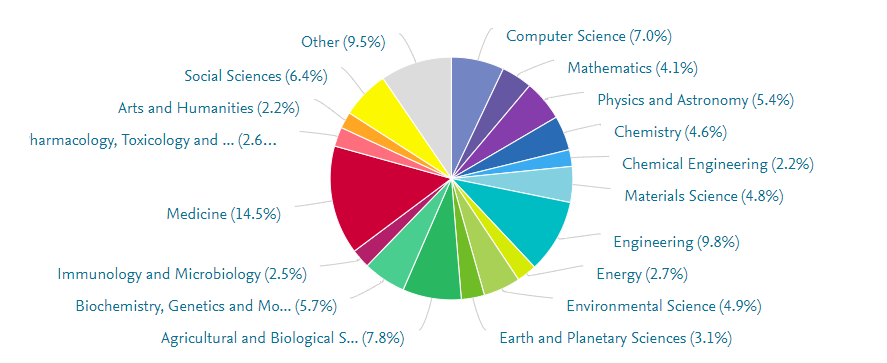
Performance Indicators
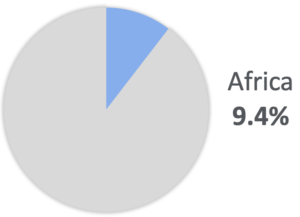
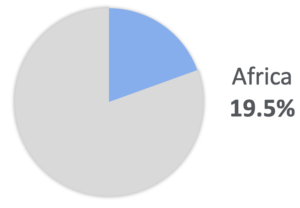
The percentage of Africa’s publications which are in the top 10% of the most-cited publications in the world.
The percentage of Africa’s publications in the 10% most-cited journals in the world (by CiteScore percentile).
Top countries by research output (2014-2018)
*Field-weighted Citation Impact is the ratio of citations received relative to the expected world average for the subject field, publication type and publication year.
International Collaborations (2014-2018)
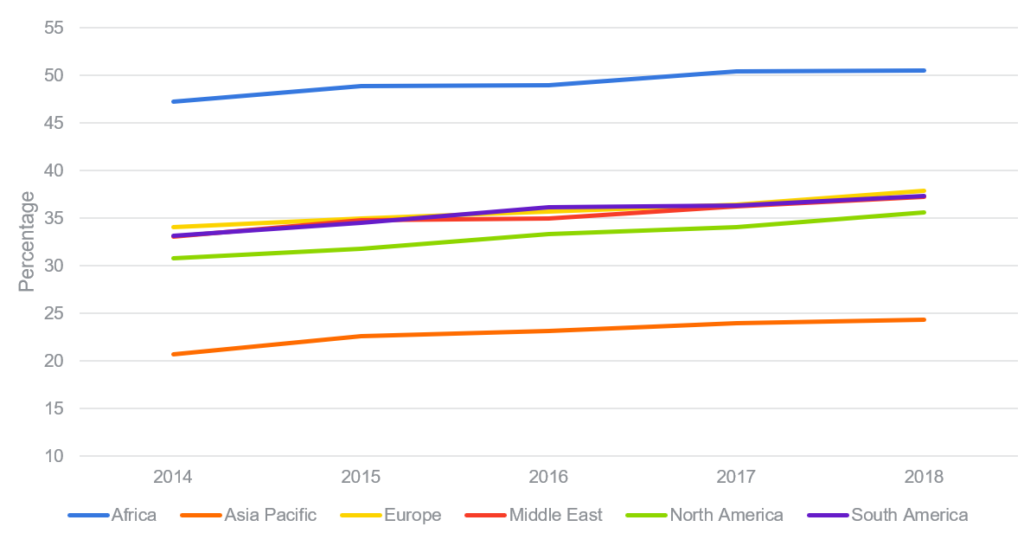
Overall Research Performance
Scholarly output
Authors
FWCI
424,710
382,059
0.98
Citation count
Citations per publication
2,816,048
6.6
This section presents data on the scholarly output and FWCI by country in Elsevier publications as to assess their contribution to the SDGS .














SPOTLIGHT ON AFRICAN AWARD WINNERS

Chao Charity Mbogo (2020 Winner)
Kenya Methodist University, Kenya
For her work designing techniques to support students in resource-constrained environments to learn computer programming using mobile devices. Her research finds ways to circumvent limitations such as small screens and small keypads, that make it difficult for students to use mobile phones for programming in areas where computers are not easily available
 Germaine Djudije Kenmoe (2018 Winner)
Germaine Djudije Kenmoe (2018 Winner)
University of Yaoundé, Cameroon
For her work on mechanics and the study of friction-and-wear processes on the molecular level, which has the potential for important applications in the area of energy efficiency – to reduce the cost of energy and material losses caused by wear.
 Grace Ofori Sarpong (2017 Winner)
Grace Ofori Sarpong (2017 Winner)
University Of Mines And Technology, Ghana
For her research work in microbial-mineral interaction, recovery of precious metals, water quality monitoring and acid mine drainage: Dr. Ofori-Sarpong’s research focuses on making the extraction of gold-bearing minerals and free gold particles possible and more efficient.

Grace Ofori Sarpong (2017 Winner)
University Of Mines And Technology, Ghana
For her research work in microbial-mineral interaction, recovery of precious metals, water quality monitoring and acid mine drainage: Dr. Ofori-Sarpong’s research focuses on making the extraction of gold-bearing minerals and free gold particles possible and more efficient.
The Elsevier Foundation
Radarweg 29
1043 NX Amsterdam
Copyright © 2024 Elsevier, except certain content provided by third parties. All rights are reserved, including those for text and data mining, AI training, and similar technologies. Cookies are used by this site. To decline or learn more, see the cookie notice and privacy policy.
Cookies are used by this site. To decline or learn more, see the cookie notice and privacy policy.

















